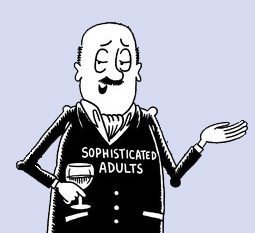There's a new Hunger Games prequel and I thought it was pretty good. It's got Coriolanus Snow (the president) as the main character during his youth shortly after the Uprising and he's such a giant piece of shit. Collins lays it on a bit thick but I didn't mind that.
Amazing! I didn't know about this. I will look into it. Hope it gets a movie!
I wish knew theory well enough to do a proper analysis but if you had any doubts that Collins is doing some class critique they will be completely erased once you read the prequel. She is definitely doing a Marxism.
Almost done with that book 'Hinterlands' that was recommended here a while ago. Really good analysis of the growth of right-wing militias and interesting nature metaphors. There's a few points where the author wants to be Cormac McCarthy, but it's overall really informative.
Been slowly working my way thru Lise Vogel's 'Marxism and Feminism: Towards a Unifying Theory' I skipped ahead to her introduction to her formulation, and now I'm about halfway thru her review of marxist literature on women's oppression. She's an exceptionally talented theoretician and researcher but it's dry-because-comprehensive. She's one of the few academic leftists/marxists I've read whose use of 'academic voice' feels justified!
Looking for recommendations for novels by non-male writers that deal with feminist or leftist topics without a lot of scenes of graphic violence. I recently read and liked Flight Path by Barbara Kingsolver and the Dispossed by LeGuin.
Finished Kotkin's Stalin: Waiting For Hitler, 1928-1941 yesterday (it rules when my boss goes on vacation and they've closed access to the boat I get assigned to work on). I'll be starting Reaganland on Monday and finally get to Parenti's Inventing Reality in my spare time.
You should check out the Soviet Century by Moshe Lewin, one of the best histories of the Soviet Union.
Does Kotkin mostly play it straight and give a dispassionate, accurate depiction of Stalin? IIRC Kotkin doesnt have any real communist leanings. I'm just aware of his book essentially refuting Anne Applebaum's book on the Holodomor. Worth noting Kotkin is a well-respected academic historian at Princeton and Applebaum is... a journalist with zero historian credentials and a clear axe to grind against the USSR.
Kotkin is not popular among the hardcore ML crowd for obvious reasons. Nevertheless I actually really like his books because he can be quite nuanced and even-handed in the most surprising circumstances. He is, however, an ardent anti-communist and is ideologically very much a Liberal who puts markets and "rule of law" on a pedestal (this is most on display in the epilogue of Armageddon Averted, where he essentially places blame for the catastrophic economic collapse of Russia in the 1990s on it being a continuation of the collapse of the communist economy and Russia's inherent lack of market institutions and rule of law as a legacy of tsarist and communist repression; while there is certainly an aspect of truth to this claim I personally find it also an exercise in apologia for the role of neoliberal ideology, the influence of American "experts", and unchecked liberalization of the economy that is inherent to a capitalist class regime rising spontaneously where there was not one before).
Again, he comes to certain particular conclusions that I strongly disagree with (two examples off the top of my head are his blunt statement that factional infighting played no role in the 37-38 terror, and that Stalin's force march industrialization resulted in economic growth nearly identical to projected growth under the tsarist system - see Robert Allen for the rebuttal of that one) but he also produces sweeping and highly nuanced breakdowns of historical events that are often controversial. For examples: he pretty much places the most blame for Molotov-Ribbentrop Pact coming into existence on the British playing stupid games and outlines exactly why it was very much in Stalin's interest to come to rapprochement with Hitler at that precise moment in time; he places a significant amount of blame for the Winter War in Finland precipitating on Finnish intransigence and inability to understand Stalin's legitimate security concerns; and he outlines the extensive and highly successful German disinformation campaign that effectively trapped Stalin in a "congratulations, you played yourself" self-deception that explains his bizarre behavior in the lead-up to Operation Barbarossa.
Probably most importantly, Kotkin produces his receipts. He clearly perused the Soviet archives extensively and cites a massive amount of documentation, including handwritten annotations and signatures by Stalin himself, even as he constructs a vicious condemnatory narrative denouncing Stalin and communism as a whole during events such as the collectivization/dekulakization and the 37-38 terror. I've read a lot of Getty when it comes to the latter event but Kotkin's breakdown of events surprisingly did influence my existing opinion of it. It's not pretty. But it's important to confront these things and understand why they happened, even if they challenge your convictions. And that's why I think it's important that every self-respecting Leninist needs to read and rely on respected academics like Kotkin and not hacks like Grover Furr.
I'm learning to accept how disappointed I'm going to be as I get closer and closer to the end of Wise Man's Fear. I'm going to need to cope with knowing that Rothfuss will procrastinate until his dying day. Brandon Sanderson will have to finish the last 7 books in a single year for him.
Im reading An Indigenous People's History of the United States, didn't know I could hate the Founding Fathers more than I already did.
I just finished up a fun short novel, now I'm trying to finish Ibram X Kendi's How to Be an Antiracist
Still working through Capital. Read Women's Liberation and the African Freedom Struggle the other day, a collection of a couple speeches by Thomas Sankara.
Requested The Dispossessed from the library, also trying to read Thunderstruck by Erik Larson, but historical fiction like that just isn't really my jam.
Also Hinterlands, as someone else mentioned. Can’t comment on it because of my status as a dumbass, but it is very interesting and instills in me a sense of just how structural economic stuff is; how “overdetermined” economic life in the US is, to use a sort of buzzword.
Once I finish it, as I should over the weekend, I’ll return to Arrighi’s Long Twentieth Century. I’m not at all far into it, but I’ve really been curious about the 1970s crisis while also having practically no conception of the history of the economy. Definitely fascinating but a slow read.




